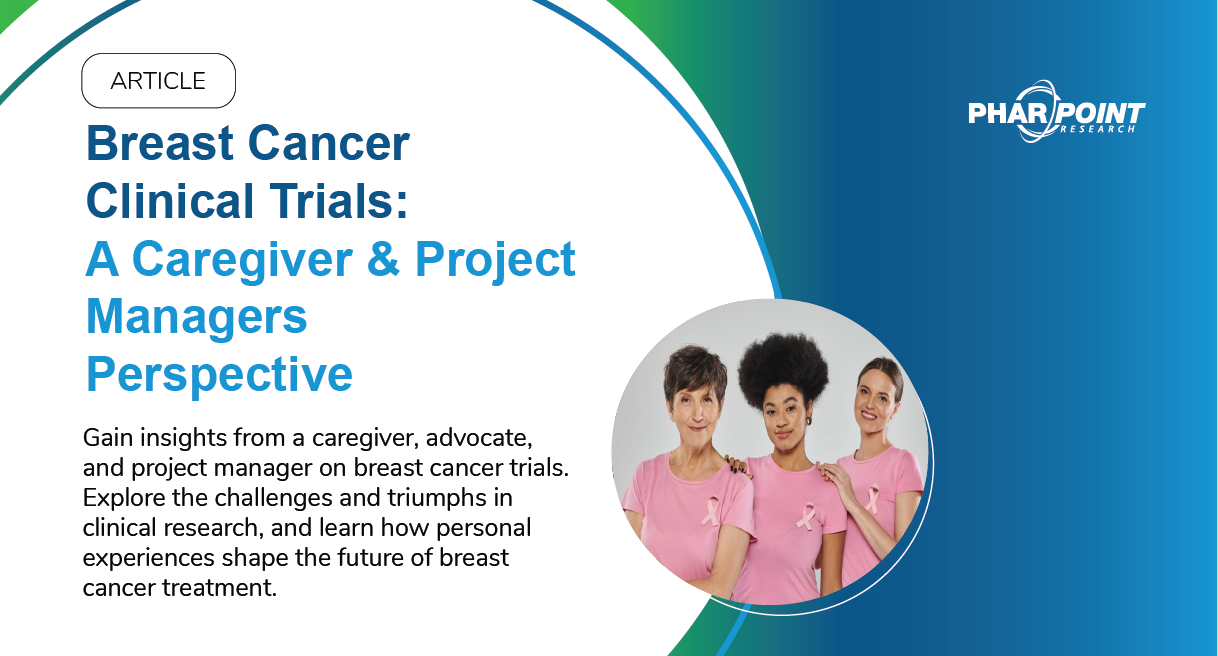
“Being an advocate for my mother made a big difference,” Tamara said. “Some people might be going through this process alone, or may not be able to understand the whole disease. I feel I was fortunate to be able to put my oncology background to work advocating for my mom.”
Tamara, a project manager (PM) at PharPoint Research, has significant experience within the breast cancer research community.
Her experience spans over a decade and includes working with the National Cancer Institute and pharmaceutical companies to develop research protocols and operations logistics for large, multi-center Phase 2 and 3 oncology trials including biospecimen management.
When Tamara’s mother was diagnosed with Stage 1 Breast Cancer, she experienced first-hand the challenges of being a caregiver for a breast cancer patient.
“It’s difficult, when you’re in that position,” Tamara shared.
“You are familiar with the potential outcomes, and you know the probabilities. You try to take on the role of caregiver and supporter of your loved one, while at the same time being respectful and trusting of the opinion of investigators and clinical experts.
“I felt that I was equipped to ask the right questions,” Tamara said.
“Being an advocate for my mother made a big difference,” Tamara said. “Some people might be going through this process alone or may not be able to understand the whole disease. I feel I was fortunate to be able to put my oncology background to work advocating for my mom.”
Tamara’s personal experience with her mom impacted her approach to managing oncology clinical trials, with a much better understanding and ability to put herself in the shoes of a patient or a nurse at the site.
She emphasized the significance of patient education and understanding when entering a clinical trial along with keeping patients engaged throughout the duration of the study. This can sometimes be a challenge for patients and investigative sites.
Successfully managing clinical trials requires a mindfulness towards potential obstacles and appropriate risk management planning. PMs have to remain fully informed and proactive. “Identifying potential barriers to enrollment early on, considering a patient-centric approach and implementing strategies for mitigating risks accordingly are fundamental.” Tamara said.
“Over the years, there has been so much research being conducted on breast cancer partnering with a lot of funding and advocacy placed into educating society on breast cancer.” Tamara said. “I believe that there is optimism among the scientific community that better therapeutics, or even a cure, can be found within our lifetime.”
“And most importantly, I think that when you’re treating patients, you shouldn’t be seeing the cancer in them,” Tamara said. “You should see that opportunity to get better.”
RELATED RESOURCES


